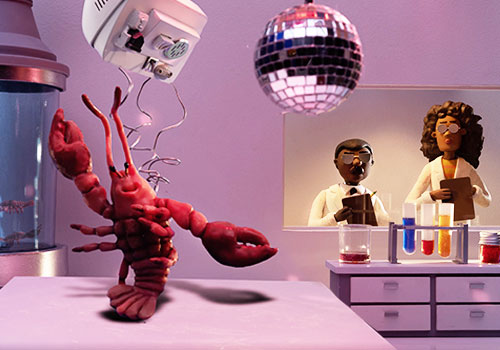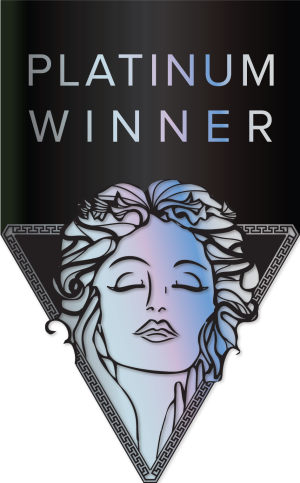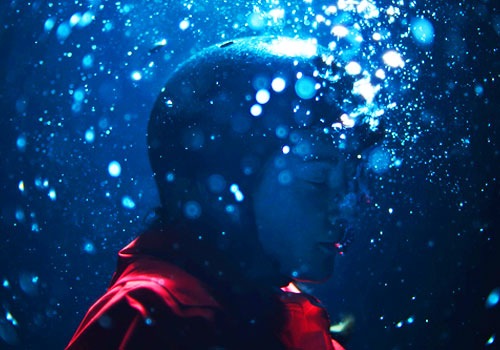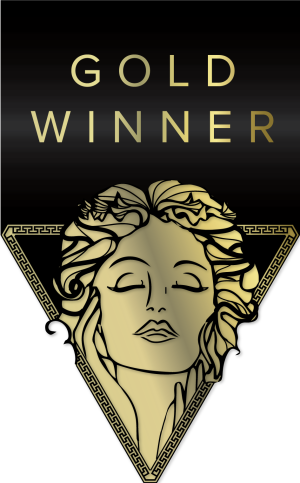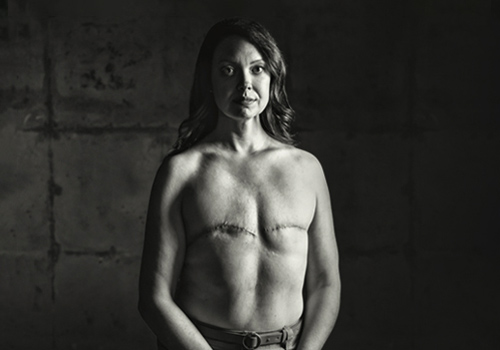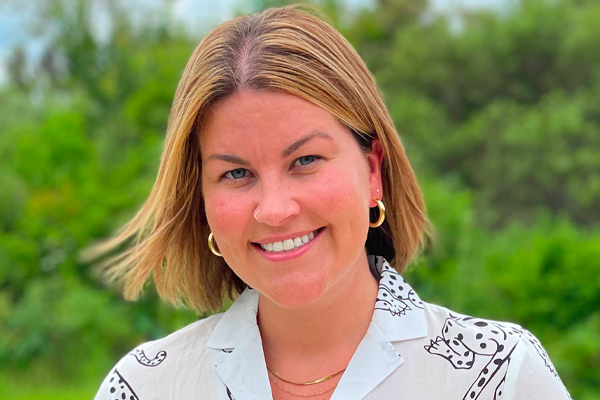
Interview
Taylor Preston
Faktory, United States
Over a decade, Taylor Preston has created award-winning ad campaigns, including healthcare brands. As a creative director, she lead the team in crafting standout, strategically aligned campaigns.
1 Please give us a brief bio of yourself and your creative background.
Ever since I was a child, I was drawn to making things. Growing up, my parents pursued painting and woodworking as side jobs, and our garage doubled as a craft workshop and teaching space. I was so accustomed to this creative environment that it took me a while to realize that garages were typically used for parking cars. Being surrounded by people who were passionate about creating things rubbed off on me from an early age. After experimenting with various arts and crafts, I eventually discovered graphic design. I went on to study Visual Communications in college, and later returned to the same classrooms as a teacher. Having a broad understanding of creative principles has helped me easily transition to working on a variety of mediums, from concepting and illustrating to video production.
2 What made you become/why did you choose to become a creative?
For me, there really was never any other option. It was the only thing that excited me. It was simply a question of which type of creative career to pursue. It was second nature and I can't imagine doing something that isn't in the creative field.
3 Tell us more about your business/company, job profile, and what you do.
I am a Creative Director at Faktory. I have a background in graphic design and video production. From a creative standpoint, Faktory does it all from identity creation to multi-faceted campaigns. We believe in the power of storytelling as a way to connect with people. We also provide media and PR services.
4 What does “creativity” mean to you?
Creativity means solving a problem in a unique and memorable way.
5 Tell us about your creative and/or design process.
My creative process starts with understanding the problem and focusing on the information I need to communicate to the audience. Then, I begin to research. I look into as many angles as I can on a subject from different points of view and let all of the information splash around in my head. Next, I clear my mind and make connections happen. Most of my creative process is sitting in silence trying to make those connections. I throw away ideas that don't excite me or align with the message. Once I have a good idea, I remove any unessential elements. When I'm done, I'm left with a concept in its purest form.
6 What's your favorite part of the creative process and why?
My favorite part of the creative process is when things start to materialize. It's when you can step back and look at something and think: Wow that came out of my head, and now it's real.
7 Describe your creative style and its main characteristics.
I try to create things that feel familiar yet fresh. A concept needs to be easily understood by the audience without being something they have already seen. I like to trust an audience. I do not like ideas that are too see/say.
8 Do you think your country and its cultural heritage has an impact on your creativity process?
I believe who you are and where you are from impacts the work you create. Ideally, you try to separate your personal self from the project and embody the target audience so you can see through their eyes. Though, it's natural that your perspective will seep into your work.
9 Can you explain a bit about the winning work you entered into the 2023 MUSE Creative Awards, and why you chose to enter this project?
In all, Faktory won three awards. Each is quite different from the other in tone and execution ranging from a serious spot about cancer to a humorous spot using a claymation dancing lobster. But, they share a few key elements. Each is centered around a truth, story, and emotion. When you have all three of those elements, you connect with people in an authentic and memorable way.
10 What are your top three (3) favorite things about our industry?
First, I enjoy collaborating with people who push my ideas to places I would have never taken them to alone. I enjoy solving the problem for a client, especially when they trust the solution. And I enjoy seeing a brainchild become reality.
11 Where do you see the evolution of creative industry going over the next 5-10 years?
In the future, I see the industry becoming more personalized to individual audiences. People are constantly consuming content and becoming more advertising literate. They can quickly tell what is authentic and entertaining. Thus, the quality of storytelling and the ability to connect to an audience needs to level up or it will be lost in the insurmountable waves of content we consume.
12 If you were a student entering this industry or an aspiring MUSE Creative Awards submitter, what advice would you give them?
Don't censor what you think a client won't like. Instead, present work you believe is best and be ready to explain why it works. Be sure to focus on the details--that's where you can make the biggest creative strokes. Also, be critical of your own work.
13 What is your key to success? Any parting words of wisdom?
There is no substitution for hard work and dedication.
